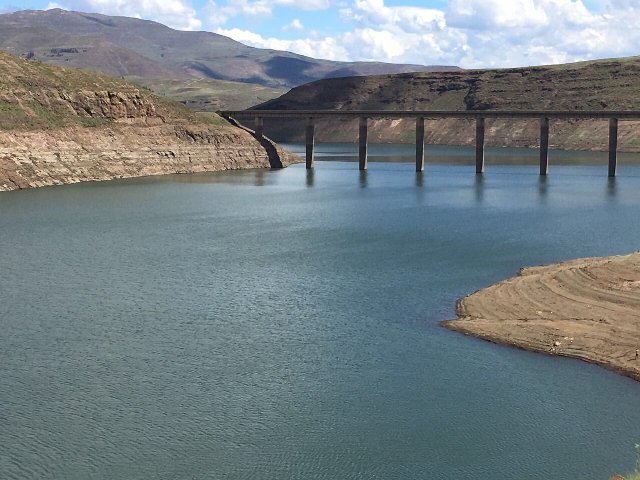Water and Sanitation Minister Pemmy Majodina of South Africa and her counterpart from the Kingdom of Lesotho, Minister Mohlomi Moleko, have expressed optimism regarding the preparedness for the six-month maintenance closure of the Lesotho Highlands Water Project (LHWP) tunnel. The maintenance closure is set to begin on October 1, 2024, and will last until March 31, 2025, aiming to undertake essential repairs and maintenance on the transfer and delivery tunnels of the LHWP.
During a virtual meeting held on September 26, 2024, the Ministers discussed strategies to ensure a smooth maintenance process, emphasizing the importance of responsible water consumption during the temporary halt in water deliveries. Minister Majodina remarked, “Given the temporary halt in water deliveries, it is essential to use water sparingly and avoid wastage during this time.” She reassured citizens that the government has already implemented preparations to guarantee continued water supply but stressed the need for collective action to minimize the impact.
The planned maintenance work includes grit-blasting the steel-lined sections of the tunnel and re-applying corrosion protection to the tunnel lining, alongside other necessary repairs identified during the previous maintenance shutdown in 2019. This maintenance is expected to extend the infrastructure's lifespan by an additional 20 to 30 years.
Both Ministers acknowledged that while the closure will temporarily disrupt water transfer, it is crucial for the long-term sustainability and integrity of the LHWP infrastructure. The maintenance will result in a complete shutdown of the water delivery system, affecting the Phase I Water Transfer and Delivery Tunnels. Specifically, this means there will be no water transfer from the Katse Dam to the Muela Hydropower Station during the closure period, halting power generation at Muela. Furthermore, the 37 km delivery tunnel will cease to deliver water from Lesotho to South Africa, impacting both North and South delivery tunnels.
To address potential concerns, the Departments of Water and Sanitation from both countries have implemented comprehensive measures to ensure water security. The Integrated Vaal River System (IVRS), comprising 14 interconnected dams, including Vaal, Sterkfontein, Grootdraai, and Bloemhof, will play a crucial role in mitigating the impact of the closure. These dams are linked by a network of rivers, canals, tunnels, pipelines, and pump stations, allowing for the transfer of water as needed.
The South African government conducted a thorough risk assessment regarding the IVRS's performance due to the tunnel closure. The analysis confirmed that the impact on overall water availability will be minimal, as most dams in the IVRS will be relatively full when the closure occurs.
Both Majodina and Moleko emphasized their commitment to ensuring that citizens do not face undue inconvenience during this period. They affirmed that comprehensive technical and operational plans are in place to manage the situation effectively. “All resources for the implementation of the maintenance work have been mobilized, and preparations are ready for the work ahead,” stated the Department of Water and Sanitation.
Additionally, the Lesotho government has established contingency plans to secure alternative electricity supply during this maintenance period, ensuring that power generation continues in Lesotho. By taking these proactive measures, both governments aim to safeguard water delivery and maintain the economic benefits derived from the LHWP for the communities reliant on this essential infrastructure.
In conclusion, while the LHWP tunnel closure poses short-term challenges, the collaborative efforts between South Africa and Lesotho signify a commitment to long-term water security and infrastructure integrity, ultimately benefiting citizens of both nations.











